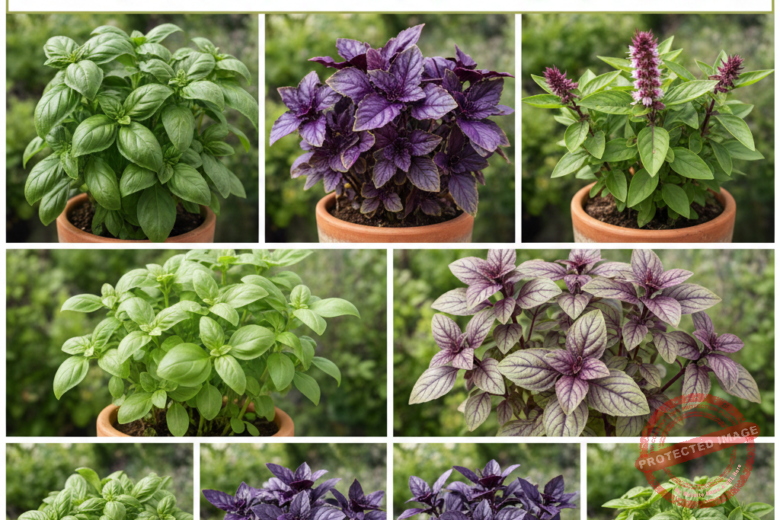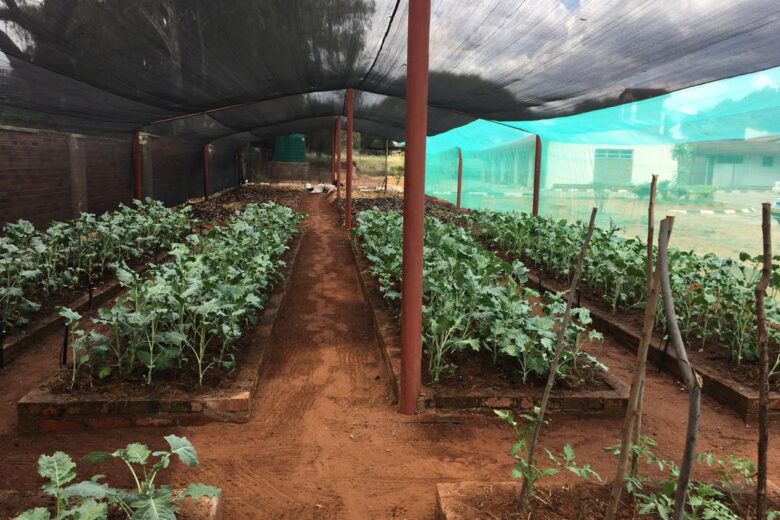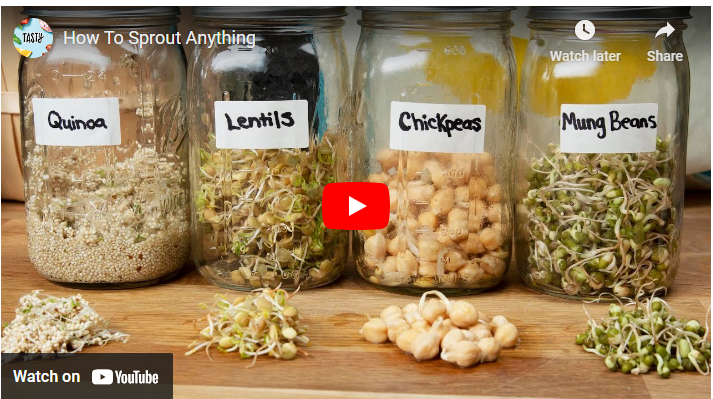Are you considering venturing into agriculture in Ghana? Discover the immense potential of the country’s agricultural sector with these 15 most profitable crops to grow.
In Ghana’s fertile lands and favorable climate, you can cultivate crops that offer lucrative returns.
From high-value export crops like cocoa, cashew, and shea nuts to local favorites such as plantains, yams, and maize, the agricultural landscape in Ghana is ripe with opportunities.
Embrace the potential of profitable crops like pineapples, papayas, tomatoes, peppers, and passion fruits.
With proper planning, market research, and sustainable farming practices, you can unlock the economic rewards of growing these crops in Ghana’s vibrant agricultural sector.
15 Most Profitable Crops To Grow Ghana
Ghana is a proud agricultural nation with diverse crops grown in the country. However, some of the crops grown in the country are more profitable. Here are 15 of the most profitable crops to grow in Ghana:
- Cocoa
- Cashew
- Shea nuts
- Plantains
- Maize
- Pineapples
- Papayas
- Tomatoes
- Peppers
- Passion fruits
- Cassava
- Rice
- Yam
- Okra
- Cabbage
#1. Cocoa
Ghana is globally renowned for its high-quality cocoa beans, known for their rich flavor and aroma. The country’s favorable climate and fertile soils provide ideal conditions for cocoa cultivation.
With a strong demand for chocolate products worldwide, cocoa farming offers significant profit potential.
Ghana’s cocoa industry also benefits from government support and initiatives aimed at improving productivity and ensuring fair trade practices.
#2. Cashew
The country’s favorable agro-ecological conditions make it suitable for cashew production. Cashews are not only a lucrative cash crop, but their by-products, such as cashew butter and oil, offer additional revenue streams.
Ghana’s cashew sector has witnessed substantial growth, with export opportunities contributing to its profitability.
#3. Shea nuts
Shea nuts, derived from the shea tree, have gained popularity for their versatile applications in the cosmetics and skincare industry.
Ghana is one of the leading producers of shea nuts, and the country’s shea butter production has become a profitable venture for small-scale farmers.
The growing demand for natural and organic skincare products globally ensures a steady market for shea nuts, making it a lucrative crop to grow.
#4. Plantains
Plantains are a staple food in Ghanaian cuisine and have a strong domestic market. They are versatile and can be consumed at various stages of ripeness.
Plantain cultivation offers profitable opportunities, as they are in constant demand for cooking, frying, and processing into plantain flour and chips.
Moreover, Ghana’s proximity to neighboring countries provides export potential for plantains, enhancing their profitability.
#5. Maize
Maize, or corn, is a highly versatile crop with extensive usage in Ghana and beyond. It serves as a staple food and is a key ingredient in various food products such as porridge, bread, and snacks.
Maize is used in animal feed production and the production of ethanol. The wide range of applications and consistent demand for maize make it a profitable crop for Ghanaian farmers.
#6. Pineapples
Ghana’s tropical climate provides an ideal environment for pineapple cultivation.
The country’s sweet and succulent pineapples have a strong domestic demand and are also exported to international markets.
Pineapple farming offers profitability through both fresh fruit sales and processing into juices, canned fruits, and dried pineapple snacks.
#7. Papayas
With their vibrant color, delicious flavor, and nutritional value, papayas are a profitable crop in Ghana.
The fruit’s popularity in local markets and its export potential contribute to its profitability.
Papayas are also used in the production of jams, jellies, and other value-added products, further enhancing their economic significance.
#8. Tomatoes
Tomatoes are a versatile and widely consumed crop in Ghana. The demand for fresh tomatoes, tomato paste, sauces, and canned tomatoes creates opportunities for profitable tomato farming.
However, tomato cultivation requires careful disease management and efficient post-harvest handling to maximize returns and mitigate risks.
#9. Peppers
Ghanaian cuisine relies heavily on the use of various pepper varieties. Bell peppers, chili peppers, and other hot pepper varieties have significant market demand.
Peppers can be sold fresh, dried, or processed into sauces and spices. Ghana’s favorable climate and fertile soils support profitable pepper production for both local consumption and export.
#10. Passion fruits
Passion fruits thrive in Ghana’s climate and are a high-value crop. The tangy and aromatic fruit is popular in the beverage industry, as well as for fresh consumption.
Passion fruit farming offers profitable returns, especially when cultivated using trellis systems to maximize yield and quality.
#11. Cassava
Cassava is a staple crop in Ghana, known for its versatility and drought resistance.
It offers multiple revenue streams through its utilization in food processing, animal feed production, and the manufacturing of industrial starch.
The demand for cassava-based products, such as garri, fufu, and tapioca, ensures profitability for farmers engaged in cassava cultivation.
#12. Rice
Rice production in Ghana has gained momentum in recent years due to increasing domestic demand and efforts to reduce reliance on imports.
With the government’s support and investment in irrigation infrastructure, rice farming has become a profitable venture.
Local rice consumption is high, making it a lucrative crop, and there is potential for exportation to neighboring countries.
#13. Yam
Yam is a highly valued and widely consumed crop in Ghana. Its demand in the local market is significant, particularly for traditional dishes.
Yam cultivation offers profitability, as it is a high-yielding crop and has good storage capabilities.
The export market for yam is also expanding, providing further opportunities for Ghanaian farmers.
#14. Okra
Okra, known for its slimy texture and nutritional value, is a profitable crop in Ghana.
It is a popular vegetable used in various local dishes and has export potential to markets with demand for African vegetables.
With its relatively short growing cycle, okra farming allows for multiple harvests, contributing to its profitability.
#15. Cabbage
Cabbage cultivation has gained traction in Ghana due to its high demand in both the domestic and export markets.
Cabbage is used in various culinary preparations and is a favored vegetable in salads and coleslaw.
The ability to cultivate cabbage year-round in different regions of Ghana presents profitable opportunities for farmers.
Cultivation Techniques of Profitable Crops for Small Farms in Ghana
- Soil Preparation: Conduct soil tests to determine nutrient levels and pH, and amend the soil accordingly. Use organic matter, such as compost or manure, to improve soil fertility and structure.
- Crop Rotation: Practice crop rotation to minimize pests and diseases, maintain soil health, and optimize yields. Rotate crops with different nutrient requirements to prevent nutrient depletion.
- Proper Planting Techniques: Follow recommended planting guidelines for each crop, including spacing, depth, and timing. Use quality seeds or seedlings and ensure proper irrigation during establishment.
- Integrated Pest Management (IPM): Implement IPM practices to manage pests and diseases. Monitor crops regularly, use resistant varieties, employ biological controls, and judiciously apply pesticides when necessary.
- Efficient Water Management: Utilize irrigation techniques suitable for each crop, such as drip irrigation or mulching, to conserve water and optimize plant growth. Monitor soil moisture levels and avoid over- or under-watering.
Best Practices for Profitable Crops for Small Farms in Ghana
- Market Research: Conduct thorough market research to identify profitable crop opportunities, assess market demand, and understand pricing trends. Identify niche markets or value-added products that can fetch higher prices.
- Diversification: Consider growing a mix of profitable crops to spread risk and optimize income. Select crops with complementary growing seasons to ensure a continuous supply and minimize market fluctuations.
- Farm Efficiency: Implement efficient farm management practices, including proper record-keeping, budgeting, and resource management. Optimize land use, maximize productivity, and minimize waste.
- Capacity Building: Continuously update knowledge and skills through training programs, workshops, and agricultural extension services. Keep yourself updated on emerging technologies, methodologies, and market trends.
Risk Management Strategies for Profitable Crops for Small Farms in Ghana
- Crop Insurance: Explore crop insurance options to mitigate losses due to adverse weather, pests, diseases, or market fluctuations. Understand the coverage, terms, and conditions of the insurance policies available.
- Diversification: As mentioned earlier, diversify your crop portfolio to reduce the impact of any single crop failure. This spreads the risk and ensures a more stable income stream.
- Savings and Financial Planning: Set aside funds for emergencies or unforeseen circumstances. Develop a financial plan that includes provisions for crop failures, input costs, and market fluctuations.
- Knowledge Exchange: Engage with other farmers, cooperatives, or farming associations to share experiences, insights, and information. Collaborate on risk management strategies and learn from collective wisdom.
Market Demand of Profitable Crops for Small Farms in Ghana
Ghana offers a range of market opportunities for profitable crops. The domestic market, with a growing population and increasing middle-class consumers, provides a consistent demand for fresh produce and processed agricultural products.
There is a growing demand for Ghanaian crops in regional and international markets.
Factors for Successful Planting of Profitable Crops for Small Farms in Ghana
- Climate and Agroecological Conditions: Consider the suitability of specific crops to Ghana’s climate, rainfall patterns, and agroecological zones. Match crops to the appropriate growing conditions for optimal yields and quality.
- Access to Quality Inputs: Ensure access to quality seeds, seedlings, fertilizers, pesticides, and other inputs. Source inputs from reputable suppliers or certified sources to maintain crop quality and productivity.
- Technical Knowledge: Acquire technical knowledge on crop-specific requirements, including planting techniques, nutrient management, irrigation, and pest control. Stay updated on the latest research and best practices for each crop.
Economic Significance of these Profitable Crops for Small Farms in Ghana
The cultivation of profitable crops in Ghana holds significant economic significance for small farms.
These crops provide income generation opportunities, contribute to food security, create employment, and stimulate rural development.
The profitability of these crops enables small-scale farmers to improve their livelihoods, invest in farm infrastructure and education, and contribute to the overall economic growth of Ghana’s agricultural sector.
Best Crop to Grow On 5 Acres
The best crop to grow on 5 acres or any size of land depends on various factors such as climate, market demand, and personal preferences.
However, some crops that are often considered suitable for small-scale farming on 5 acres include:
- Specialty vegetables: High-value and niche vegetables like microgreens, gourmet salad greens, or heirloom tomatoes can fetch premium prices in local markets or restaurants.
- Herbs: Culinary or medicinal herbs such as basil, rosemary, or lavender can be profitable due to their high demand in the culinary and wellness industries.
- Berries: Small fruits like strawberries, blueberries, or raspberries are popular and can be sold fresh or processed into jams, jellies, or value-added products.
- Cut flowers: Growing flowers like sunflowers, roses, or dahlias for the floral market can be a profitable venture, especially if you establish relationships with local florists or participate in farmers’ markets.
- Organic produce: Growing a variety of organic vegetables or fruits can cater to the increasing demand for organic products in the market.
What Is The Most Profitable Crop For Small Farm
The most profitable crop for a small farm depends on several factors, including the local market, availability of resources, and the farmer’s expertise.
Conducting market research and analyzing the specific conditions of the farm can help determine the most profitable crop for a small-scale operation.
What Agricultural Crop Is Most Profitable Per Acre
The agricultural crop that is most profitable per acre can vary depending on location, market conditions, and crop management.
However, some crops that are often considered high-value and potentially profitable per acre include saffron, truffles, lavender, ginseng, and specialty herbs or vegetables.
Best Crops For Beginning Farmers
For beginning farmers, it is advisable to start with crops that have lower input costs, are relatively easy to grow, and have a stable market demand.
Some recommended crops for beginning farmers include lettuce, radishes, tomatoes, peppers, zucchini, beans, or herbs like basil or cilantro.
These crops require basic agricultural knowledge, have a shorter growth cycle, and can provide a steady income stream.
Best Crop To Grow On 10 Acres
The best crop to grow on 10 acres, similar to the 5-acre scenario, depends on various factors such as local market demand, available resources, and climate conditions.
However, crops like soybeans, pumpkins, sweet corn, potatoes, or even small-scale orchards (e.g., apples, peaches) can be viable options for a 10-acre farm, depending on the specific location and market opportunities.
Most Profitable Plants To Grow In A Greenhouse
Regarding profitable plants to grow in a greenhouse, some high-value crops suitable for greenhouse production include:
- Tomatoes: Greenhouse-grown tomatoes can yield higher quality and consistent harvests throughout the year, catering to market demand for fresh, flavorful tomatoes.
- Cucumbers: Growing cucumbers in a controlled greenhouse environment can result in early and high-yielding crops, providing a steady income stream.
- Lettuce and Salad Greens: These crops have a relatively short growing cycle, and greenhouse production can help extend the growing season and provide a continuous supply to local markets or restaurants.
- Herbs: Growing herbs like basil, mint, or parsley in a greenhouse allows for year-round production and meeting the demand for fresh herbs.
- Flowers: Specialty flowers like orchids, roses, or gerbera daisies can be profitable in greenhouse cultivation, especially for the floral market or local florists.
Conclusion
Ghana presents a wealth of opportunities for cultivating profitable crops. Whether it’s cashew, cocoa, plantains, or passion fruits, the diverse agricultural landscape and favorable climate offer great potential for economic success. By harnessing the rich resources and employing effective farming techniques, Ghanaian farmers can thrive in the cultivation of these highly lucrative crops.



